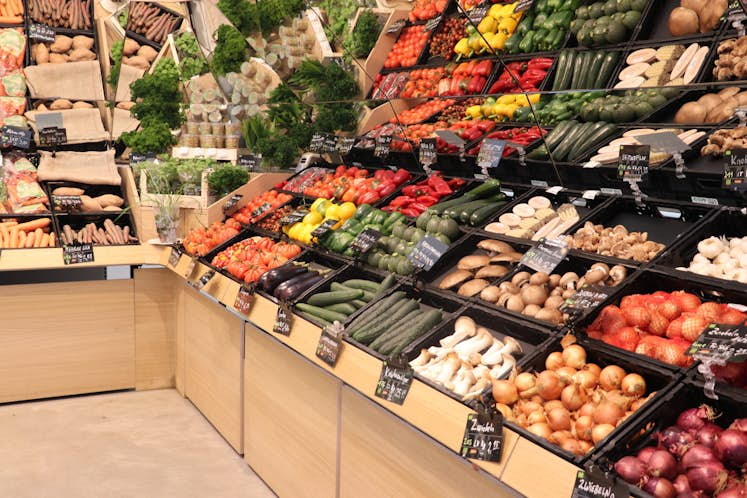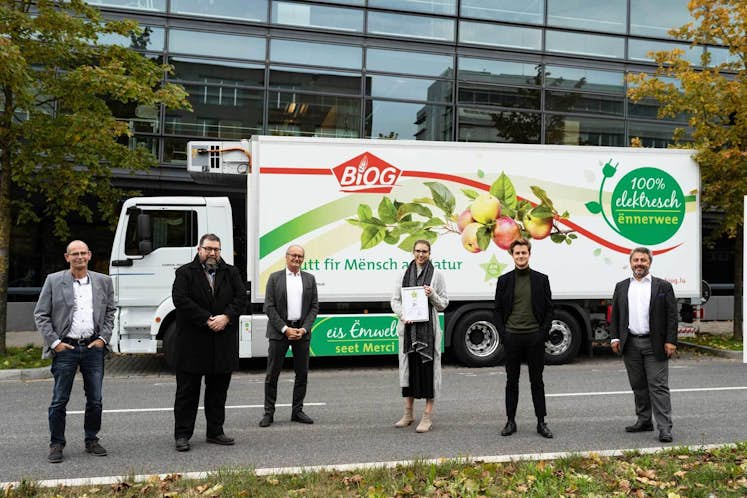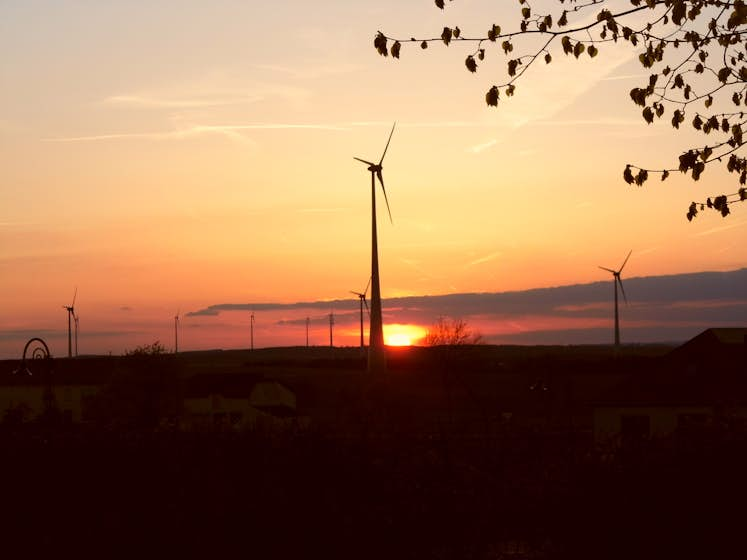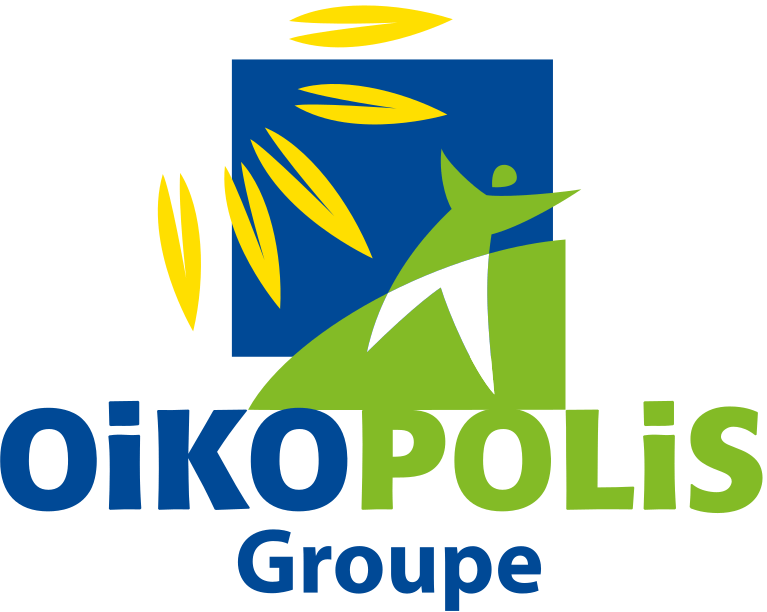Climate protection in focus
Sustainability and the use of innovative technologies is a core value in our mission statement. In addition, we measure the impact of our corporate activities on the environment and climate in terms of CO2-emissions. Organic agriculture has a direct, positive impact on climate protection.
Buying organic means protecting the climate
Buying organic means protecting the climate
It is common knowledge that organic farming does not use inputs like chemical pesticides or mineral fertilizers, thus directly contributing to healthier ecosystems. Indirectly organic farming is more sustainable, because the production of those inputs is highly energy-intensive and need large amounts of fossil fuels, leading to greenhouse gas emissions.
Organic farms in Luxembourg take further their environmental and social responsibility; in their purchasing practices of inputs, they are paying close attention in selecting their suppliers. In general is livestock in organic agriculture only fed with organically produced fodder, as much as possible produced on the own farm or from organic farms in the region. Imported fodder, often also genetically modified and used in non-organic agriculture or intensive livestock keeping, has also far-reaching consequences for the environment and climate as their production is causing deforestation of rainforests.
Some studies have documented that the production method in agriculture - like organic or non-organic - is much more relevant for sustainable development than the country of origin of products. The transport of goods accounts for only 6% of all food-related greenhouse gas emissions. In contrast, up to 80% of environmental impacts occur on the farm depending on the production method. One reason that consumers should consider to take the production method like organic or biodynamic into account.

Eco-consciousness logistics is our benchmark
Eco-consciousness logistics is our benchmark
Since 2020, Biogros uses the first e-truck in Luxemburg for the distribution of its organic products. The charging station directly at Biogros’ Wallenborn site supply the eTGM for 100% with renewable energy. While a conventional truck emits around 97 kilograms of CO₂ per 100 km, the eTGM only emits around 1.3 kg of CO₂, thanks to the use of electricity generated by wind and hydro-power. In addition to reduced CO₂ emissions, the energy use is also reduced by two-thirds compared to a diesel vehicle. For this innovation, Biogros was awarded the prize of Fonds nova naturstroum.
Other measures to lower energy and fuel consumption are improving logistics schedules for better use of truck capacities, reducing the maximum speed and optimising the air pressure in the tires. In addition, a cooperation for the distribution of organic products of the German wholesaler Dennree within Luxembourg was established. Biogros distributes now their products also and therewith reducing transports and pursuing the goal of a cooperative market economy.
Because of all measures implemented, CO₂ emissions per pallet are reduced by 50%. As a result, Biogros received in 2020 the Lean & Green Award - an award for logistics companies that significantly reduce their CO₂ emissions and thus contribute to climate protection. As Biogros reduced its emissions faster as defined in the requirements, it reached immediately a “two star”- status, therewith the first company in Luxembourg to receive this result.
An optimized logistics planning and the collaboration with a German wholesaler means transporting 75% more pallets with only 2% more fuel consumption.

Renewable energy is our normal standard
Renewable energy is our normal standard
In all of our operational processes, we use energy exclusively from renewable resources, mostly hydro and wind-power. For business travel of Oikopolis employees at the headquarters in Munsbach, e-cars are provided using also renewable energy only. In addition, through Oikopolis Participations SA, we hold shares in Hëpperdanger Wandenergie S.àr.l. that owns a quarter of the shares in Wandpark Hengischt SA. The latter operates a wind-power-plant in the north of Luxembourg. Through this participation, the Oikopolis group generates renewable energy and therewith reducing CO2-emissions. As we actually generate two times more as the amount of CO2-emissions caused by the group, we are operating in a "climate-neutral" manner even without compensation. Still we have made voluntary annual compensation payments (2012-2020) as climate protection measure on top. The funds went to three organizations supporting organic and biodynamic agriculture.

